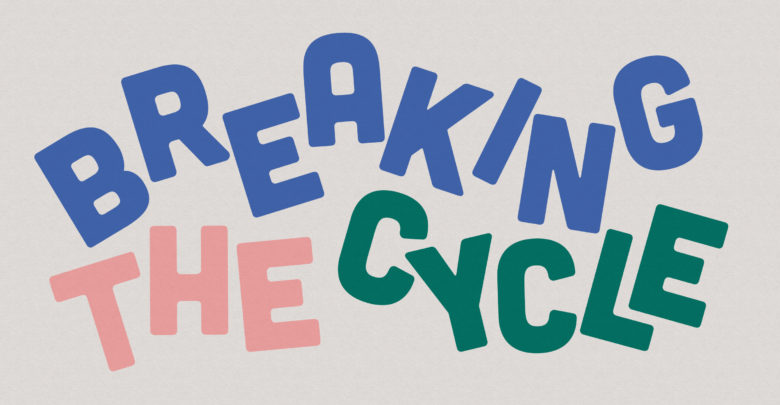 Peter Elima
Peter ElimaLet me set the stage for you.
You’re in class, and your professor gives you an assignment. You look at the due date and note that there’s quite a bit of time between today and your due date. You spend the next few days, perhaps even weeks, not thinking about the assignment. You hang out with your friends, play video games, watch a few episodes on Netflix, or do literally any activity that is not your assignment.
As the assignment due date looms closer, you start thinking about it a lot more. However, it’s not enough to get you concerned. Yet. You tell yourself that you have a couple of days left. You have time. When do you start working on your assignment, you don’t really feel like it. Maybe you’ll watch another episode of Friends. After that, you’ll text a few friends. And then maybe you’ll watch one YouTube video. Or five. The next thing you know, time has flown by and a day has passed. Not to worry though, you’ll work on it tomorrow, or the day after that.
Before you know it, you’re pulling an all nighter in the library. You’ve got your tea, your energy drinks, your coffee — whatever it is that will keep you awake. As every minute passes, you pray that you’ll finish your essay in time. Exhaustion sets in, but you mentally slap yourself awake and keep going. If you do finish your assignment on time, you feel like you’ve accomplished the impossible. You feel a sense of relief. You promise yourself that you’ve learned your lesson this time, and you will not repeat past mistakes. That is, until your professor hands you your next assignment, and the whole cycle starts again.
Sound familiar?
Don’t worry, you’re not alone. Almost everyone suffers from procrastination and wants to find a way to put an end to it.
So why do we procrastinate?
Sometimes procrastination is caused by anxiety. As students, we want to do well in school. We want to get good grades, impress our professors, and get into grad school or graduate as soon as possible to find a job. We not only want to get assignments done, but we also want to get it done right. However, this fear of not doing well kicks in the fight or flight instinct. While you don’t necessarily feel a strong urge to physically run away from the assignment, you do have the urge to scroll on Instagram or Facebook for a couple of hours instead of working.
Some students feel an adrenaline rush when they leave their assignment until the very last minute. They feel like they work best in a crisis, using the fear and the stress to fuel them through an all-nighter.
For other students, clutter might be an issue. It’s hard to get assignments done when you’re surrounded by books and papers. External clutter can result in a cluttered and unfocused mind.
There are a plethora of reasons as to why students procrastinate, but the difficulties associated with it remain the same.
Procrastination is a habit that can lead to anxiety and guilt. It creates a cycle of negative emotions that can affect mental health. In addition, the lack of time to work on assignments can also lead to poor grades, ultimately affecting mental health.
Constant psychological strain, heavy amounts of caffeine, and having to pull all nighters to finish assignments can take a toll on your health too. Accumulated stress and lack of sleep can lead to poor health or even drastic health effects.
Luckily, there is a bright side. Any habit can be broken, and procrastination is no exception. Sadly, it does take a lot of time and effort to fix. It is well worth it though, in order to end the cycle of anxiety, guilt, and stress. At the very least, your mental and physical health will thank you in the long run. If you’re not quite sure where to start, here are a few tips to get you on the right track.
DO:
Try to calm down before working.
Procrastination is often done on impulse. In his lecture entitled Beat Procrastination by Doing Nothing, Dr. Peter M. Vishton states that sitting quietly can help break the impulse to become engaged in avoidance behaviours. Before you start working, close your eyes for about 15 to 20 minutes. Think about what you need to accomplish. Take a few deep breaths and calm down. This task alone can help you find the motivation you need to get started.
Visualize the results
In his book, Focus: Your Key to More Productivity, Jurgen Wolff suggests that closing your eyes and visualizing the outcome of getting your work done. Engage all five senses. Maybe you can see yourself handing in your work, whether physically in class or electronically on eClass. You may also visualize yourself getting a good grade. Imagine hearing your friends ask you to hang out, and you can finally say yes without feeling guilty because your work is done. You’ll probably feel a sense of accomplishment as well. Perhaps to reward yourself, you’ll go to your favourite restaurant and order your favourite dish. Imagine how good it would taste. Wolff advises to make your visualization as vivid and exciting. That excitement can propel you to start working.
If you have trouble envisioning your future results, you can just remember a time when you finished a difficult assignment. Once again, use all five senses. Transfer those emotions to your present project.
Take large projects and break them up into smaller tasks
In his lecture, Dr. Vishton explains the benefits of breaking up large projects into manageable tasks. Each of these tasks should take you no longer than 20 minutes. Keep track of your progress as you complete them. You can do this by creating a to-do list. Because the pleasure centre of the brain is fueled by accomplishment rather than the pursuit of the goal, finishing each task will feed into the pleasure centre. Each time you check off your to-do list, you give yourself the motivation to keep going.
DON’T:
Work in a messy space
In her book, The Complete Idiot’s Guide to Overcoming Procrastination, Michelle Tullier argues that a messy environment can be a factor to procrastination. Clutter can literally become an obstacle to getting work done. After learning this piece of information, you may feel the temptation to clean your work space. Don’t. Instead, Tullier suggests that individuals should plan a chunk of time to declutter their work space. This includes electronically decluttering as well. Get rid of apps you don’t use, consider blocking sites that cause you to procrastinate too much, and limit the number of social networks you belong to. If gaming is becoming a problem for you, avoid playing games on your laptop, and use gaming consoles that work with your TV instead.
Tell yourself that you work better in a crisis
Wolff suggests that individuals who enjoy adrenaline-inducing activities should go bungee jumping, play high action video games, or participate in some hard exercise. Do not try and take a chance on your grades by purposefully waiting until the last minute to finish your assignment. It’s not worth it! Great assignments take time, thought, and effort.
Try to be perfect
Give yourself permission to do an assignment badly. If you have an essay to write, write a really bad draft. If you have a presentation to create, allow yourself to sound awful. For a perfectionist, this advice is easier said than done. Wolff recommends trying to do smaller, less important tasks imperfectly. That way, you can show yourself that the world will not come to a screeching halt if you do not do something perfectly.
Keep in mind that the best projects are done in drafts. No one ever gets it right on their first try.
***
While I can sit here and spew as much advice as I can until I die from exhaustion, YOU are the one who needs to put in the effort. The next time your professor hands you an assignment, you can use all the tips that I have suggested or you can use the ones that speak to you the most. Either way, only you have the power to take control of your own life and break the cycle of procrastination.
Good luck.




